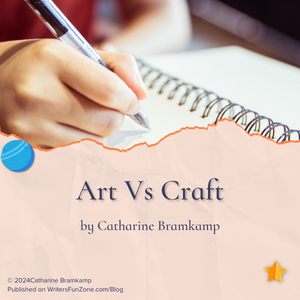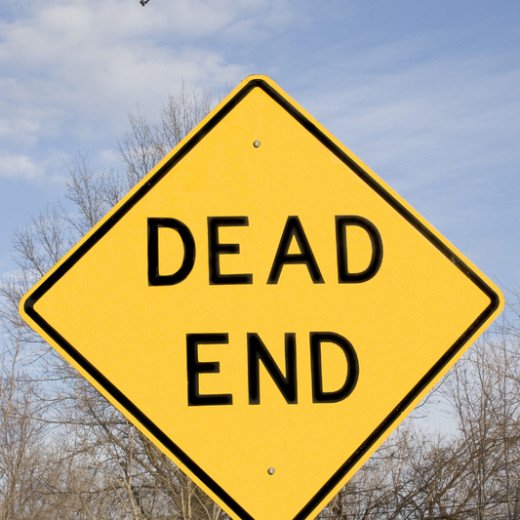Art Vs Craft by Catharine Bramkamp
 Let’s welcome back monthly columnist Catharine Bramkamp as she shares with us “Art Vs Craft by Catharine Bramkamp.” Enjoy!
Let’s welcome back monthly columnist Catharine Bramkamp as she shares with us “Art Vs Craft by Catharine Bramkamp.” Enjoy!
***
As we head into Writers Conference season, we, you and I, will hear a great deal about Craft.
As in Learn Your Craft, Hone Your Craft, Writing as Craft, The Craft of Writing.
Once you’ve been thoroughly stunned by the craft talk, you can now consider Art and rush to a bookstore for books on the ART of Writing, Writing as Art, The Art of War, the War of Art.
Besides workshop titles, is there really a difference between Craft and Art?
Here Are Nine Ideas About Art Versus Craft
- Art is described as an unstructured and open-ended form of work; that expresses emotions, feelings, and vision. Craft uses our hands and brains to create useful, physical objects.
- Art relies on artistic merit whereas craft is based on learned skills and technique.
- Art is aesthetic, craft is practical.
- Art gives particular attention to ideas, feelings and visual qualities. Craft requires mastering the tools of the trade as well as applying learned techniques.
- There is a flow of emotion in art, which emerges from heart and soul. In contrast, the craft is the product of the mind.
- Craft can be quantified easily which is not in the case of art.
- Art cannot and should not necessarily be duplicated. In many cases the point of good craft is duplication and distribution.
- Good Art is the consequence of an individual’s innate ability. Good Craft is the result of learned ability and experience.
- Craft means income, art means . . . grants. We endlessly privilege Art but it can be difficult to make money from what we categorize as “pure art”.
My question is why does art enjoy a lofty stratosphere of regard while craft, infinitely more practical and necessary, is denigrated as being lesser?
Blame Plato
Plato once famously dismissed cooking as just a “knack”, a project that could be done without thinking, without reason, and certainly without the art of philosophy.
We can unpack that a bit more to ask, who was cooking?
Women and/or slaves, people who don’t matter and without much say in the matter must devote their lives in the service of activities eschewed by upper class men and so neither the craft nor its practitioners have merit.
Since the Greeks disassociated art from craft, craft has been categorically and dismissively assigned to women and labor.
The very few people who have the time and money to create “ART” are the very same people who distribute awards, grants and reviews.
This attitude also aided the myth of the solo genius. I am the artist – the headliner.
All the others involved – the typists, editors, and cooks are mere craftspeople, and not worthy of mention.
Consider our own industry, art is winning a Pulitzer or Nobel prize. Like TS Eliot.
Craft is writing popular books and earning a very comfortable living. Like Danielle Steele.
We would argue that a mansion in Pacific Heights trumps a job at a London Bank. Yet, Yet. . .
We still want to make art. We still want to toss our hair and say – yes, I’m an artist. I make art.
And you do.
Without craft, art cannot be well expressed. As much as an artist would like to deny it, craft is critical to art.
Craft is learned systems that build and improve with practice.
With a strong background in practice craft, we are able to express weird visions or dreams in a language readers understand.
The more we understand our craft, the better able we can express our art. The more easily our message is understood.
Art And Craft Are Inextricably Entwined
Plato, he who did not acknowledge the source of his dinner, ironically ended up using what was essentially a craft – writing.
His mentor, Socrates, did not approve of this new system, this mere craft, at all.
Socrates felt that writing would undermine the work of a true philosopher and learned man: memorization.
Yet in the face of this dismissive attitude, Plato persisted, one could even say he had a “knack” for writing.
Socrates’s philosophical lectures were pure art as ethereal as a dance, meant to be delivered, enjoyed in the moment, then irretrievably lost.
But Plato did not pay attention to his mentor, writing was the only way to preserve the art.
There is no such thing as “mere genre” or conversely “pure art”.
What an artist really pursues is the immersion, the flow, the zone.
We want to be in the process experiencing both the satisfaction of growing expertise and using new skills to better express our art.
Craft is the process, the result is often Art.
Which makes us all artists.
***
Want to read more articles like this one Writer’s Fun Zone? Subscribe here.
***
ABOUT THE AUTHOR
 Catharine Bramkamp is a successful writing coach, Chief Storytelling Officer, former co-producer of Newbie Writers Podcast, and author of a dozen books including the Real Estate Diva Mysteries series, and The Future Girls series. She holds two degrees in English and is an adjunct university professor. After fracturing her wrist, she has figured out there is very little she is able to do with one hand tied behind her back. She delights in inspiring her readers.
Catharine Bramkamp is a successful writing coach, Chief Storytelling Officer, former co-producer of Newbie Writers Podcast, and author of a dozen books including the Real Estate Diva Mysteries series, and The Future Girls series. She holds two degrees in English and is an adjunct university professor. After fracturing her wrist, she has figured out there is very little she is able to do with one hand tied behind her back. She delights in inspiring her readers.






